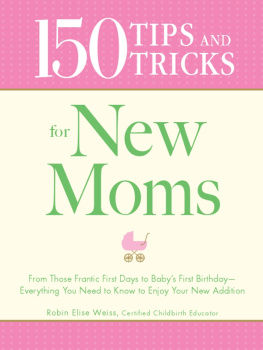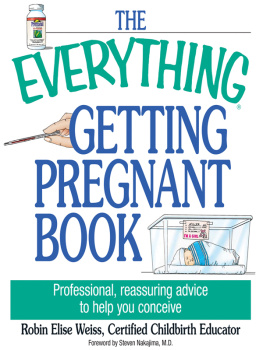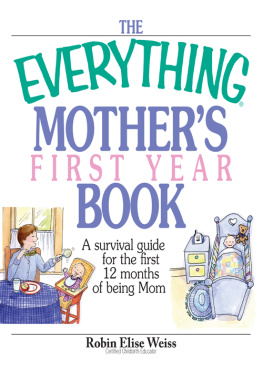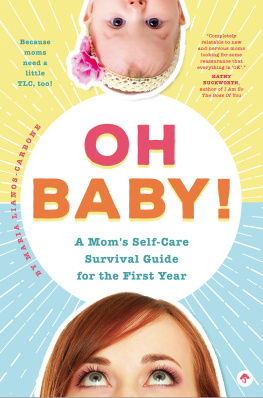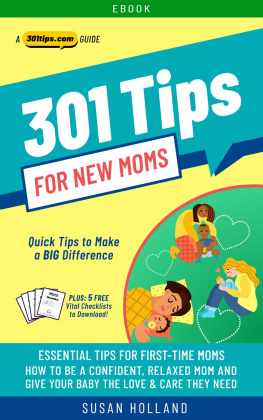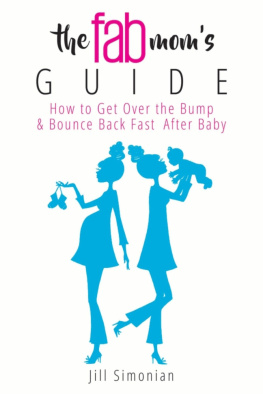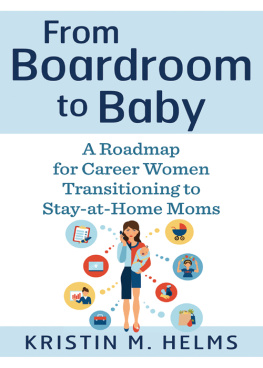
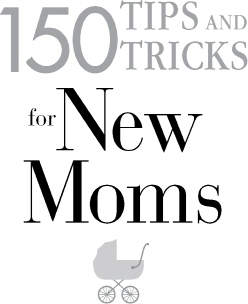
From Those Frantic First Days to Babys First Birthday
Everything You Need to Know to Enjoy Your New Addition
Robin Elise Weiss, Certified Childbirth Educator

Copyright 2009 by F+W Media, Inc.
All rights reserved.
This book, or parts thereof, may not be reproduced in any
form without permission from the publisher; exceptions are
made for brief excerpts used in published reviews.
Published by
Adams Media, a division of F+W Media, Inc.
57 Littlefield Street, Avon, MA 02322. U.S.A.
www.adamsmedia.com
Contains material adapted and abridged from The EverythingMothers First
Year Book, by Robin Elise Weiss, 2005 by F+W Media, Inc.,
ISBN 10: 1-59337-425-9; ISBN 13: 978-1-59337-425-9.
ISBN 10: 1-60550-348-7
ISBN 13: 978-1-60550-348-6
eISBN: 978-1-44052-015-0
Printed in Canada.
J I H G F E D C B A
Library of Congress Cataloging-in-Publication Data
is available from the publisher.
This publication is designed to provide accurate and authoritative information with regard to the subject matter covered. It is sold with the understanding that the publisher is not engaged in rendering legal, accounting, or other professional advice. If legal advice or other expert assistance is required, the services of a competent professional person should be sought.
From a Declaration of Principles jointly adopted by a Committee of the
American Bar Association and a Committee of Publishers and Associations
Many of the designations used by manufacturers and sellers to distinguish their product are claimed as trademarks. Where those designations appear in this book and Adams Media was aware of a trademark claim, the designations have been printed with initial capital letters.
This book is available at quantity discounts for bulk purchases.
For information, please call 1-800-289-0963.
Contents
Part One
Pre-Baby Preparation
Part Two
The Birth and Your First Weeks as a Mom
Part Three
Baby Care Basics
Part Four
Nutrition for the Family
Part Five
Physical and Mental Development
Part Six
Post-Baby Body and Fitness
Part Seven
Sex after Baby
Part Eight
Working and Child Care
Part Nine
Stay-at-Home Parenthood
Part Ten
Ready for More?
Introduction
Becoming a Mom
The fact that youve picked up this book means that you are getting ready for one of the most exciting, challenging, and life-changing experiences a person can have: Youre going to be a mom! You may be feeling anxious, worried, elated, or a combination of all three. Once your baby is born several more emotions (many of them hormone related) will work their way into the mix as well. One things for sure: Pregnancy and birth are a wild ride!
The good news is that feelings of anxiety and worry are completely normal as you prepare for parenthood. Rest assured that all the basic, practical information you need for when your baby comes is in this book. Youll find tips for choosing diapers and bottles, guidelines for nutrition and feeding, tricks for handling sleep issues, and myriad other helpful hints. One thing that you cant get from this or any book, however, is a recipe for your parenting style and goals. This is very personal to you and your partner as parents, and its something you should seriously consider before your baby arrives.
As soon as your belly starts to blossom, words of advice will probably start flowing in from all directions. During pregnancy, excess advice may be easy to shrug off, as your baby has not yet arrived. But once the baby is born, you may be a little more likely to worry. Just remember to listen only to advice that seems to be practical. Think about how it might apply to your life. Does it make sense? How would you feel if you applied it? Does it go against any of your major beliefs about parenting? If an idea seems to meet all your requirements, consider trying it out. Remember, you can always scrap the idea if it doesnt work for you.
Despite what anyone tells you, your parenting style must be developed over timeby you. However, you can still pick up tricks from existing parenting styles, including those that seem like fads. You can also take advice from friends and family but with a grain of salt; a few of their methods might work for you, but others might not. Simply keep an open mind and consider your babys unique characteristics when making these decisions.
Above all, remember that becoming a parent is a journey. You wont have all the answers the first week, the first month, or even the first year. As your family grows and evolves youll continuously learn more about yourself, your partner, and your child. As long as you work together as a team and keep your childs best interests at heart, you cant go wrong. Congratulations, good luck, and enjoy this magical experience!
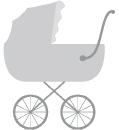
Part 1
Pre-Baby Preparation
Many mothers-to-be begin preparing for their babies the moment they find out theyre pregnant. However, most women tend to focus on things like paint colors and baby clothing instead of more pressing issues. Of course, these are the fun aspects of having a baby, and you should take time to enjoy them. But much of what happens during the birth itself will impact your postpartum period. Early establishment of bigger decisions, like who will deliver your baby and where you will give birth, can help ensure a safe, satisfying delivery and postpartum experience.
Decide Who Will Be at the Birth
In addition to your partner, there will be at least a few other people present for the birth of your baby. One of the first decisions you will make will be with whom you will give birth. Will you choose a midwife or a doctor? What about a doula?
Practitioners
Your first big choice is whether to deliver your baby under the care of a midwife or a doctor. Midwives are trained to assist with normal pregnancy, birth, and other well-woman care (birth control, annual exams, etc.). Many women with low-risk pregnancies enjoy the care of midwives while giving birth. Midwives may work in a hospital, birth center, or home-birth setting. Midwife training varies widely. Some midwives are nurses with masters degrees, some are certified by organizations like the North American Registry of Midwives (NARM), others have been trained at hospitals or birth centers, and many have a combination of training.
If you choose not to give birth with a midwife, you might prefer the help of a doctor. There are several different kinds of doctors available to you, including the family practitioner (FP) for low-risk women, the obstetrician/gynecologist (OB/GYN) for nearly every type of pregnancy, and the maternal fetal medicine (MFM) specialist for high-risk women. All of these doctors have attended medical school; what differs is the postgraduate residency course they completed. If youd like to use your family practitioner, you must first be sure he delivers babies, as not every family practitioner incorporates birth into his practice.
Next page
